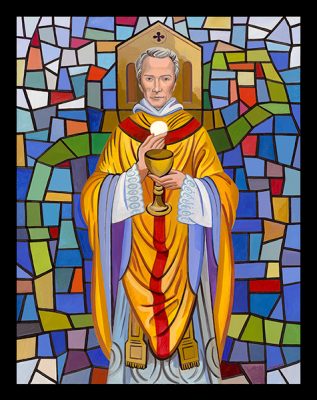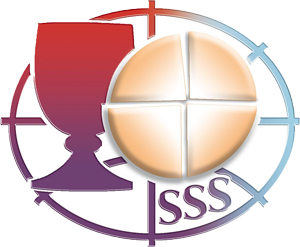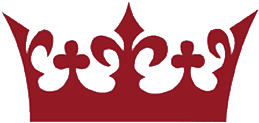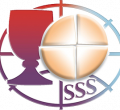Saint Peter Julian Eymard

He once described himself as “a little like Jacob, always on a journey,” always seeking. But, in truth, it was there from the beginning ― the great love and the driving passion of his life: Jesus Christ in the Eucharist.
One day, young Peter Julian Eymard [pronounced A-mard], just five years of age, wandered off from the family home. His sister and half-sister searched frantically for the boy and finally located him in the parish church, standing on a stool close to the tabernacle of the high altar. In response to their anxious questioning, he answered simply, “I am here listening to Jesus.”
The Early Years - 1811-1839
Like all of us, Peter Julian Eymard was conditioned by his familial and cultural background as well as by the social and political milieu of his time.
Life in France during the first half of the nineteenth century was difficult. Years earlier, the French Revolution had radically altered the political, social, and religious landscape of the country. As a teenager, Eymard would experience the Industrial Revolution which swept across Europe. As a young man, he witnessed the dawning of the Age of Romanticism in art, music, and literature.
Peter Julian’s road to the priesthood, as well as his life as a priest, was shadowed by the cross. An intransigent anti-clericalism marked French society, and his father, having seen several sons die, did not want his only surviving son to become a priest. His first attempt to pursue the priesthood ended in serious illness. Following his father’s death, he tried once again, and on July 20, 1834, at age 23, was ordained a priest of the Diocese of Grenoble.
The Church of Eymard’s day was greatly affected by Jansenism, a religious movement which focused on the gravity of human sinfulness and a corresponding belief in the unworthiness of human motivation and activity. Thus, in his seminary years and first years of ministry, Eymard was influenced by a predominantly reparation spirituality. He would struggle his whole life to seek that inner perfection that would enable him to offer the gift of his entire self.
Perhaps it was the intensification of this spiritual struggle along with his lifelong devotion to Mary that led him to enter religious life. On August 20, 1839, Father Eymard professed vows as a member of the Society of Mary (the Marists).
The Marist Years - 1839-1856
Throughout his life, Peter Julian had an intense devotion to Mary, the Mother of God. He knew about the apparition of Our Lady of La Salette and enjoyed traveling to various Marian shrines. It was Father Eymard’s apostolic work for the Society of Mary that would put him in contact with the various currents of eucharistic piety that were flowing through the French Church and elsewhere in Europe.
Despite persistent health issues, Peter Julian was an amazingly energetic and hardworking priest and religious. Naturally drawn to contemplation, the demands of his ministry, especially his preaching schedule and the various administrative duties assigned to him, made it impossible for him to live a purely contemplative life. He was an outstanding organizer of lay societies, a zealous educator, a well-prepared preacher, and something of a prophetic figure in his Marist community and even to his superiors.
Father Eymard was especially effective at preaching Eucharistic devotions, very popular at the time. It was on one such occasion, on Corpus Christi, May 25, 1845, that he had a powerful experience that would change the course of his life. While carrying the Blessed Sacrament in procession at Saint Paul’s Church in Lyons, he felt an intense attraction to Christ in the Eucharist and resolved to “bring all the world to the knowledge and love of our Lord; to preach nothing but Jesus Christ, and Jesus Christ Eucharistic.”
This grace would gradually consume his life and his energies over the next several years. When responsibility for writing a rule for the new Third Order of Mary was entrusted to him by Father Jean Claude Colin, the Marist founder, Peter Julian asked permission to write a eucharistic rule. Father Colin answered that this was not the charism of the Society of Mary. Nevertheless, the idea for such a rule had already been written in the mind and heart of Father Eymard, and, in 1856, he made the painful decision to leave the Marists in the hope of a founding a religious congregation dedicated to the Eucharist.
The Years of Founding - 1856-1868
Founding the Congregation of the Blessed Sacrament was not an easy task. Faithfully following the Holy Spirit’s inspiration brought Father Eymard relational conflicts, situations of personal embarrassment, financial troubles, and physical exhaustion. The first hurdle was getting approval for the new eucharistic institute.
The work of preparation for First Communion, especially among adults, was the aspect of Eymard’s vision that interested Archbishop Marie Dominique Auguste Sibour of Paris when the two met and the priest shared his project. Eucharistic communities and organizations were springing up throughout France ― many of them emphasizing only prayer and reparation ― but Archbishop Sibour rightly perceived that Eymard’s understanding of the Eucharist was not limited merely to adoration but to reaching out to those who were estranged from the Church and evangelizing them. He gave approval on May 13, 1856. This date is observed in the congregations Father Eymard founded as the feast of Our Lady of the Blessed Sacrament.
Father Eymard immediately directed his ministry to the young workers, the “rag pickers,” and other barely employable men who made up a large segment of the labor force of Paris. No sooner did he attract a few followers to join him than he had to close the house and move to another location. This happened twice within the span of a few years. At times, the Eymardian communities were so poor that a neighboring convent of sisters fed the priests and brothers. Not being able to provide food and shelter did not help Father Eymard attract vocations!
"Gift of Self"
As early as 1845 ― and perhaps owing to the grace of his experience at Saint Paul’s in Lyons on Corpus Christi ― Father Eymard began to move away from a spirituality of reparation to a spirituality which emphasized the love of Christ. In 1865, just three years prior to his death, he made a long retreat in Rome. During this retreat, he was struck by the overwhelming realization of Christ’s love for him, a love which he felt was taking over his entire life. In response, he wished to make the “gift of self:” of his will, his personality, and his affections, to God and to Christ in the Eucharist.
Anticipating the renewal brought about by the Second Vatican Council, Saint Peter Julian Eymard had a vision of eucharistic communities of priests, deacons, brothers, sisters, and lay people living lives of total dedication to the spiritual values that are inspired by the celebration of the Eucharist and deepened through prayer before the Blessed Sacrament.
His life was a true journey to Christ in the Eucharist, a journey begun intuitively on that day when a small boy wandered away from his family home to go to church ― to listen to Jesus in the tabernacle.
A Continuing Witness
The life of “the Apostle of the Eucharist” has inspired people around the world to live a more dynamic and transformative eucharistic life by uniting regular participation in the Mass, times of contemplation and prayer in the presence of the Blessed Sacrament, and service to others in Christ’s name.
August 1, 2018, marked the 150th anniversary of the death of Saint Peter Julian Eymard. In observance of this occasion, a team of Blessed Sacrament Religious and Associates began offering a Daily Eucharistic Reflection based on the Scripture texts of Mass and the teachings of Saint Peter Julian Eymard. If you would like to receive this Daily Eucharistic Reflection in your inbox at the start of each day, please email us at: cee@blessedsacrament.com. There is no cost.
Other Resources
Books on Saint Peter Julian Eymard
[See CEE Resource page for details]
Tomorrow Will Be Too Late by Norman Pelletier, SSS -A short, compelling biography of Saint Peter Julian Eymard.
Mañana Será Demasiado Tarde by Father Norman Pelletier, SSS – Spanish edition of Tomorrow Will Be Too Late.
Peter Julian Eymard: Apostle of the Eucharist by André Guitton, SSS – An analysis of Father Eymard’s life, Eucharistic vocation, and insights.
The Eucharist and Saint Peter Julian Eymard by Bernard Camiré, SSS – Short reflections on Eucharistic insights of Father Eymard.
May God Be Praised! The Eucharistic Life According to Saint Peter Julian Eymard – A collection of articles on Father Eymard. Editor: James W. Brown.
The Spiritual Journey of Saint Peter Julian Eymard by Michael Perez, SSS – A brief article on the interior life and the Eucharistic grace of Father Eymard.
Links Related to Saint Peter Julian Eymard
• Eymardian Places: The World of Saint Peter Julian Eymard
• Eymard in his Own Words
• Introduction to Life and Letters of Saint Peter Julian Eymard [pdf]
• Life and Letters of Eymard
• Saint Peter Julian and the Blessed Virgin Mary



